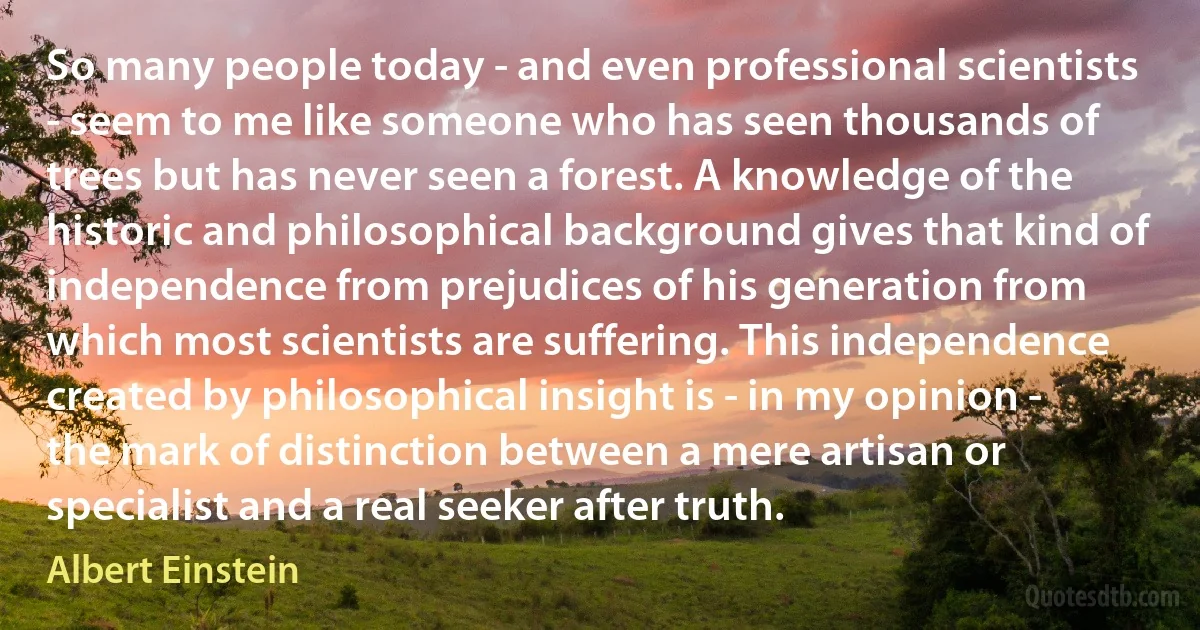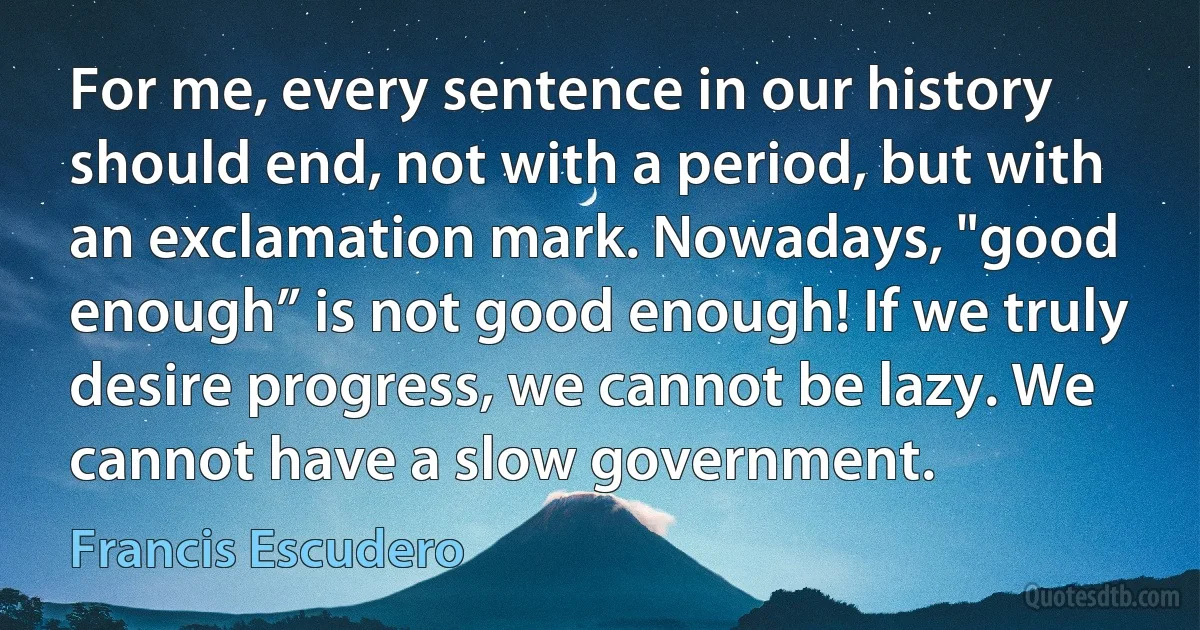Mark Quotes - page 42
Every Federal program which has contributed to the development of the West-irrigation, power, reclamation-bears his mark, and the great Federal highway program which binds this country, together, which permits this State to be competitive east and west, north and south, this in large measure is his creation. - John F. Kennedy.

Carl Hayden
Death is for a long time. Those of shallow thought say that it is forever. There is, at least, a long night of it. There is the forgetfulness and the loss of identity. The spirit, even as the body, is unstrung and burst and scattered. One goes down to death, and it leaves a mark on one forever.

R. A. Lafferty
When an archer desires to shoot his arrows successfully, he first takes great pains over his posture and aligns himself accurately with his mark. It should be the same for you who are about to shoot the head of the wicked devil. Let us be concerned first for the good order of sensations and then for the good posture of inner thoughts.'

John Chrysostom
What is the mark of a Christian? That he be purified of all defilement of the flesh and of the spirit in the Blood of Christ, perfecting sanctification in the fear of God and the love of Christ, and that he have no blemish nor spot nor any such thing; that he be holy and blameless and so eat the Body of Christ and drink His Blood; for 'he that eateth and drinketh unworthily, eateth and drinketh judgement to himself.' What is the mark of those who eat the Bread and drink the Cup of Christ? That they keep in perpetual remembrance Him who died for us and rose again.

Basil of Caesarea
Nothing like alms: great is the virtue of this practice, when the alms is poured forth from pure stores; for it is like a fountain discharging mud, when it issues from unjust stores, but when from just gains, it is as a limpid and pure stream... This fountain is better than that in Paradise (Genesis 2:10); a fountain, not dividing into four heads, but reaching unto Heaven itself: this gives birth to that river which springs up into eternal life (John 4:14): on this let Death light, and like a spark it is extinguished by the fountain: such, wherever it drops, are the mighty blessings it causes. This quenches, even as a spark, the river of fire: this so strangles that worm, as naught else can do. (Mark 9:44) He that has this, shall not gnash his teeth... Better to possess such a fountain, than to have fountains running with gold.

John Chrysostom
But for all our differences, for all the times we sparred, I never tried to hide, and I think John came to understand, the longstanding admiration that I had for him. By his own account, John was a rebellious young man. In his case, that's understandable – what faster way to distinguish yourself when you're the son and grandson of admirals than to mutiny? Eventually, though, he concluded that the only way to really make his mark on the world is to commit to something bigger than yourself. And for John, that meant answering the highest of callings – serving his country in a time of war. Others this week and this morning have spoken to the depths of his torment, and the depths of his courage, there in the cells of Hanoi, when day after day, year after year, that youthful iron was tempered into steel.

John McCain
The poetry of Dante may be considered as the bridge thrown over the stream of time, which unites the modern and ancient world. The distorted notions of invisible things which Dante and his rival Milton have idealized, are merely the mask and the mantle in which these great poets walk through eternity enveloped and disguised. It is a difficult question to determine how far they were conscious of the distinction which must have subsisted in their minds between their own creeds and that of the people. Dante at least appears to wish to mark the full extent of it by [The Divina Commedia] .
Dante was the first religious reformer, and Luther surpassed him rather in the rudeness and acrimony, than in the boldness of his censures of papal usurpation. Dante was the first awakener of entranced Europe; he created a language, in itself music and persuasion, out of a chaos of inharmonious barbarisms.

Dante Alighieri
George Marshall may well have sighed at the results of the March 1945 poll- not at his own place but at MacArthur's. Marshall, more than most, knew the whole story of MacArthur's war. It is a mark of Marshall's own greatness that he so deftly managed MacArthur's fiery comet and unselfishly used its brilliance to accomplish the objectives of a global war.

Douglas MacArthur
Instead, therefore, of saying that Man is the creature of Circumstance, it would be nearer the mark to say that Man is the architect of Circumstance. It is Character which builds an existence out of Circumstance. Our strength is measured by our plastic power. From the same materials one man builds palaces, another hovels, one warehouses, another villas.

George Henry Lewes
A storyteller who made up an account about Jesus in order to prove a point may well have known that he was passing off a fiction as a historical event. A scribe who wanted a text to say something other than what it did may well have changed the text for just that reason. In some cases it is hard to imagine how else the resultant deception could have come about. Whoever added the final twelve verses of Mark did not do so by a mere slip of the pen.

Bart D. Ehrman
What is a symbol? Etymologically speaking, the word σύμβολον comes from σνμβάλλω, to throw-with, to make something coincide with something else: a symbol was originally an identification mark made up of two halves of a coin or of a medal. Two halves of the same thing, either one standing for the other, both becoming, however, fully effective only when they matched to make up, again, the original whole. ... in the original concept of symbol, there is the suggestion of a final recomposition. Etymologies, however, do not necessarily tell the truth - or, at least, they tell the truth, in terms of historical, not of structural, semantics. What is frequently appreciated in many so-called symbols is exactly their vagueness, their openness, their fruitful ineffectiveness to express a 'final' meaning, so that with symbols and by symbols one indicates what is always beyond one's reach.

Umberto Eco
We can say that in terms of town planning - before the letter - he was a precursor. If there is an area where its reputation is guaranteed to survive for a long time to come, this is it. Belgium found itself since the end of his reign at the forefront of architectural movements and we can still see today in the Brussels landscape, and almost everywhere in the country, the mark of the king-builder.

Leopold II of Belgium


![The argument based on Jesus as liar, lunatic, or Lord was predicated on the assumption that Jesus had called himself God. [...] I had come to realize that none of our earliest traditions indicates that Jesus said any such thing about himself. And surely if Jesus had really spent his days in Galilee and then Jerusalem calling himself God, all of our sources would be eager to report it. To put it differently, if Jesus claimed he was divine, it seemed very strange indeed that Matthew, Mark, and Luke all failed to say anything about it. Did they just forget to mention that part? (Bart D. Ehrman)](https://cdn.quotesdtb.com/img/quotes_images_webp/48/bart-d-ehrman-anything-1005548.webp)
